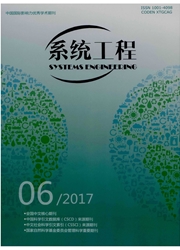

 中文摘要:
中文摘要:
关于损失厌恶的研究除了从理论上对其进行界定和度量外,学者们更多地尝试在行为决策实验中考察损失厌恶的各种特性及对经济行为的影响。通过对现有实验文献的梳理和总结发现,损失厌恶应属于人类与生俱来的一种行为偏好,它不受个体的思想成熟度及社会经验丰富度的影响,是人类(乃至灵长类动物)大脑趋利避害的本能反应;另外,在不同的决策情境下,个体所表现出的具体的损失厌恶形式和程度则可能会因决策者身份的不同而有所差异。
 英文摘要:
英文摘要:
The characteristics of individual loss aversion are studied via laboratory experiments as well as the influence of loss aversion on economical behavior. A literature review of loss aversion experiments is reported considering the situation in which individuals make the economical decisions. Through literature study, it is revealed that loss aversion is the instinct to avoid disadvantages by human beings, and the maturity as well as experience does not influence individual loss aversion. Remarkably, the decision role may make some difference to loss aversion in different decision situation.
 同期刊论文项目
同期刊论文项目
 同项目期刊论文
同项目期刊论文
 期刊信息
期刊信息
